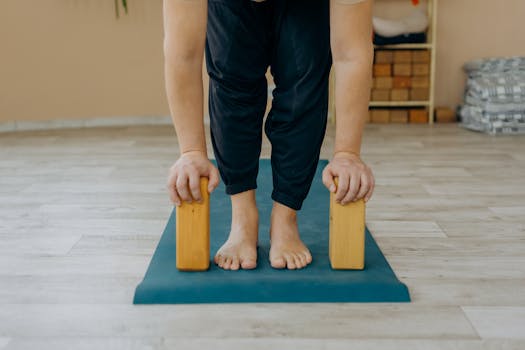Embracing a Balanced Lifestyle: Tips for a Healthier You
Takeaways:
- Adopting a balanced lifestyle involves integrating physical health, mental well-being, and emotional resilience.
- Mindfulness and self-care practices can significantly improve your quality of life.
- Nutrition and fitness play crucial roles in maintaining balance and enhancing your overall health.
Introduction

Understanding Lifestyle Balance
What is Lifestyle Balance?

The Importance of a Balanced Lifestyle
Living a balanced lifestyle helps individuals manage stress, improve mental health, and maintain physical fitness. It fosters resilience, allowing one to navigate life’s challenges more effectively.
Signs of an Imbalanced Lifestyle
Recognizing the signs of an imbalanced lifestyle is the first step toward making necessary changes. Common indicators include chronic fatigue, irritability, difficulty concentrating, and neglecting self-care.
Physical Health and Fitness
Creating a Sustainable Fitness Routine
Regular physical activity is a cornerstone of a balanced lifestyle. Start by setting realistic fitness goals that align with your interests and schedule. Whether it’s daily walks, gym workouts, or yoga, consistency is key.
Nutrition: Fueling Your Body Right
A balanced diet is essential for maintaining energy levels and overall health. Focus on whole foods, including fruits, vegetables, lean proteins, and whole grains. Meal prepping can help you stay on track with your nutritional goals.
Sleep: The Foundation of Health
Quality sleep is often overlooked but is vital for physical and mental health. Aim for 7-9 hours of sleep per night, create a calming bedtime routine, and maintain a consistent sleep schedule to improve sleep quality.
Mental Wellness and Mindfulness
The Power of Mindfulness

Stress Management Techniques
Implementing effective stress management techniques is crucial for maintaining mental balance. Explore methods such as journaling, time management, and engaging in hobbies to help alleviate stress.
Building Mental Resilience
Mental resilience enables individuals to cope with challenges and setbacks. Cultivating a positive mindset, embracing change, and seeking support can strengthen your resilience.
Emotional Health and Self-Care
The Importance of Self-Care

Establishing Healthy Relationships
Healthy relationships contribute significantly to emotional well-being. Surround yourself with supportive individuals and communicate openly about your feelings and needs.
Seeking Professional Help
Sometimes, professional support is needed to navigate emotional challenges. Therapy or counseling can provide valuable tools for coping and enhancing emotional intelligence.
Integrating Balance into Daily Life
Time Management Strategies

Setting Boundaries
Establishing boundaries is crucial for maintaining balance. Learn to say no when necessary and communicate your limits to others, ensuring that you have time for your own needs.
Creating a Balanced Environment
Your physical environment can significantly impact your lifestyle. Declutter your space, create a calming atmosphere, and surround yourself with things that inspire positivity and motivation.
Conclusion

FAQs
What is the first step to achieving a balanced lifestyle?

How can I maintain motivation to stay balanced?
Set specific, achievable goals and track your progress. Surround yourself with supportive individuals and remind yourself of the benefits of a balanced lifestyle.
Is it normal to struggle with balance?
Yes, it is completely normal. Life is dynamic, and achieving balance is an ongoing process that requires flexibility and adaptation.
Sources
- Healthline – How to Live a Balanced Lifestyle
- Mindbodygreen – Tips for Living a Balanced Life
- Psychology Today – The Importance of Self-Care





1 thought on “Embracing a Balanced Lifestyle: Tips for a Healthier You”
Comments are closed.